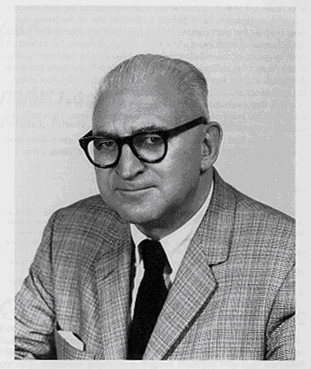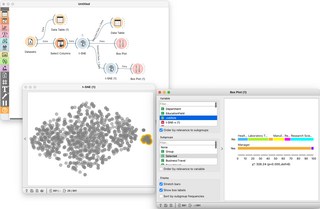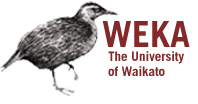Related Research Articles

Harold Dwight Lasswell was an American political scientist and communications theorist. He earned his bachelor's degree in philosophy and economics and was a PhD student at the University of Chicago. He was a professor of law at Yale University. He studied at the Universities of London, Geneva, Paris, and Berlin in the 1920s. He served as president of the American Political Science Association (APSA), of the American Society of International Law and of the World Academy of Art and Science (WAAS).
Advocacy is an activity by an individual or group that aims to influence decisions within political, economic, and social institutions. Advocacy includes activities and publications to influence public policy, laws and budgets by using facts, their relationships, the media, and messaging to educate government officials and the public. Advocacy can include many activities that a person or organization undertakes, including media campaigns, public speaking, commissioning and publishing research. Lobbying is a form of advocacy where a direct approach is made to legislators on a specific issue or specific piece of legislation. Research has started to address how advocacy groups in the United States and Canada are using social media to facilitate civic engagement and collective action.
Media literacy is an expanded conceptualization of literacy that includes the ability to access and analyze media messages as well as create, reflect and take action, using the power of information and communication to make a difference in the world. Media literacy is not restricted to one medium and is understood as a set of competencies that are essential for work, life, and citizenship. Media literacy education is the process used to advance media literacy competencies, and it is intended to promote awareness of media influence and create an active stance towards both consuming and creating media. Media literacy education is part of the curriculum in the United States and some European Union countries, and an interdisciplinary global community of media scholars and educators engages in knowledge and scholarly and professional journals and national membership associations.
The politicization of science for political gain occurs when government, business, or advocacy groups use legal or economic pressure to influence the findings of scientific research or the way it is disseminated, reported or interpreted. The politicization of science may also negatively affect academic and scientific freedom, and as a result it is considered taboo to mix politics with science. Historically, groups have conducted various campaigns to promote their interests in defiance of scientific consensus, and in an effort to manipulate public policy.
A social networking service or SNS is an online platform which people use to build social networks or social relationships with other people who share similar personal or career content, interests, activities, backgrounds or real-life connections.

Citizen science is scientific research conducted with participation from the public. There are variations in the exact definition of citizen science, with different individuals and organizations having their own specific interpretations of what citizen science encompasses. Citizen science is used in a wide range of areas of study, with most citizen science research publications being in the fields of biology and conservation. There are different applications and functions of citizen science in research projects. Citizen science can be used as a methodology where public volunteers help in collecting and classifying data, improving the scientific community's capacity. Citizen science can also involve more direct involvement from the public, with communities initiating projects researching environment and health hazards in their own communities. Participation in citizen science projects also educates the public about the scientific process and increases awareness about different topics. Some schools have students participate in citizen science projects for this purpose as a part of the teaching curriculums.

Environmental education (EE) refers to organized efforts to teach how natural environments function, and particularly, how human beings can manage behavior and ecosystems to live sustainably. It is a multi-disciplinary field integrating disciplines such as biology, chemistry, physics, ecology, earth science, atmospheric science, mathematics, and geography.

Orange is an open-source data visualization, machine learning and data mining toolkit. It features a visual programming front-end for explorative qualitative data analysis and interactive data visualization.

Civic engagement or civic participation is any individual or group activity addressing issues of public concern. Civic engagement includes communities working together or individuals working alone in both political and non-political actions to protect public values or make a change in a community. The goal of civic engagement is to address public concerns and promote the quality of the community.

Waikato Environment for Knowledge Analysis (Weka), developed at the University of Waikato, New Zealand, is free software licensed under the GNU General Public License, and the companion software to the book "Data Mining: Practical Machine Learning Tools and Techniques".
Public engagement or public participation is a term that has recently been used to describe "the practice of involving members of the public in the agenda-setting, decision-making, and policy-forming activities of organizations/institutions responsible for policy development." It is focused on the participatory actions of the public to aid in policy making based in their values.
A serious game or applied game is a game designed for a primary purpose other than pure entertainment. The "serious" adjective is generally prepended to refer to video games used by industries like defense, education, scientific exploration, health care, emergency management, city planning, engineering, politics and art. Serious games are a subgenre of serious storytelling, where storytelling is applied "outside the context of entertainment, where the narration progresses as a sequence of patterns impressive in quality ... and is part of a thoughtful progress". The idea shares aspects with simulation generally, including flight simulation and medical simulation, but explicitly emphasizes the added pedagogical value of fun and competition.
Public Agenda is a national, nonprofit, nonpartisan research and public engagement organization dedicated to strengthening democracy and expanding opportunity for all Americans. Over the years, it has focused on many issues of concern to the public, most notably K-12 education, higher education and health care, as well as criminal justice reform, immigration, energy and other issues.
Norman H. Nie was an American social scientist, university professor, inventor, and pioneering technology entrepreneur, known for being one of the developers of the Statistical Package for the Social Sciences (SPSS). Born in St. Louis, Missouri in 1943, Nie was educated at the University of the Americas in Mexico City, Washington University in St. Louis and Stanford University, where he received a Ph.D. in political science in 1971. He died on April 2, 2015 of lung cancer.
The UNESCO Institute for Statistics (UIS) is the statistical office of UNESCO and is the UN depository for cross-nationally comparable statistics on education, science and technology, culture, and communication.
Learning analytics is the measurement, collection, analysis and reporting of data about learners and their contexts, for purposes of understanding and optimizing learning and the environments in which it occurs. The growth of online learning since the 1990s, particularly in higher education, has contributed to the advancement of Learning Analytics as student data can be captured and made available for analysis. When learners use an LMS, social media, or similar online tools, their clicks, navigation patterns, time on task, social networks, information flow, and concept development through discussions can be tracked. The rapid development of massive open online courses (MOOCs) offers additional data for researchers to evaluate teaching and learning in online environments.

News360 was a personalized news aggregation app for smartphones, tablets and the web. It attempted to learn a user's interests by analyzing their interaction with news stories on the app and using semantic analysis and natural language processing to create an Interest Graph and construct a unique feed of relevant content for each user. The app claims an audience of more than 4 million users.
Rayid Ghani is a Distinguished Career Professor in the Machine Learning Department and the Heinz College of Information Systems and Public Policy at Carnegie Mellon University. Previously, he was the Director of the Center for Data Science and Public Policy, Research Associate Professor in the Department of Computer Science, and a Senior Fellow at the Harris School of Public Policy at the University of Chicago. He was also the co-founder of Edgeflip, an analytics startup that grew out of the Obama 2012 Campaign, focused on social media products for non-profits, advocacy groups, and charities. Recently, it was announced that he will be leaving the University of Chicago and joining Carnegie Mellon University's School of Computer Science and Heinz College of Information Systems and Public Policy.

Ian H. Witten is a computer scientist at the University of Waikato, New Zealand. He is a Chartered Engineer with the Institute of Electrical Engineers in London who graduated from the University of Cambridge with a BA and MA in mathematics in 1969 and an M.Sc. in mathematics and computer science from the University of Calgary, where he was a Commonwealth Scholar, in 1970. He received his Ph.D. for Learning to Control in 1976 from the University of Essex, England. Witten discovered temporal-difference learning, inventing the tabular TD(0), the first temporal-difference learning rule for reinforcement learning. Witten is a co-creator of the Sequitur algorithm and conceived and obtained funding for the development of the original WEKA software package for data mining. Witten further made considerable contributions to the field of compression, creating novel algorithms for text and image compression with Alistair Moffat and Timothy C. Bell. He is also one of the major contributors to the digital libraries field, and founder of the Greenstone Digital Library Software.
References
- ↑ LinkedIn "A Look Behind the AI that Powers LinkedIn’s Feed"
- ↑ Axios "LinkedIn goes niche"
- ↑ TechCrunch "LinkedIn Acquires Pulse For $90M In Stock And Cash"
- ↑ University of Chicago Press "Making the News: Politics, the Media, and Agenda Setting"
- ↑ Washington Monthly "College Students on the Debate: Agreeing with Obama, Agreeing that Romney Won"
- ↑ Social Science Research Network "Colleague Crowdsourcing: A Method for Incentivizing National Student Engagement and Large-N Data Collection"
- ↑ State Politics and Policy Conference "Agendas and Alternatives in the American States: Determinants of State Legislative Attention to Tobacco and Immunizations"
- ↑ Google Scholar "Timothy P. Jurka"
- ↑ The R Journal "RTextTools: A Supervised Learning Package for Text Classification"
- ↑ The R Journal "maxent: An R Package for Low-memory Multinomial Logistic Regression with Support for Semi-automated Text Classification"
- ↑ DataScience+ "Sentiment analysis with machine learning in R"
- ↑ Jurka, E. (2015). "Jerzy Jurka: June 4, 1950 – July 19, 2014". Mob DNA. 6: 2. doi:10.1186/s13100-014-0032-2. PMC 4293820 .